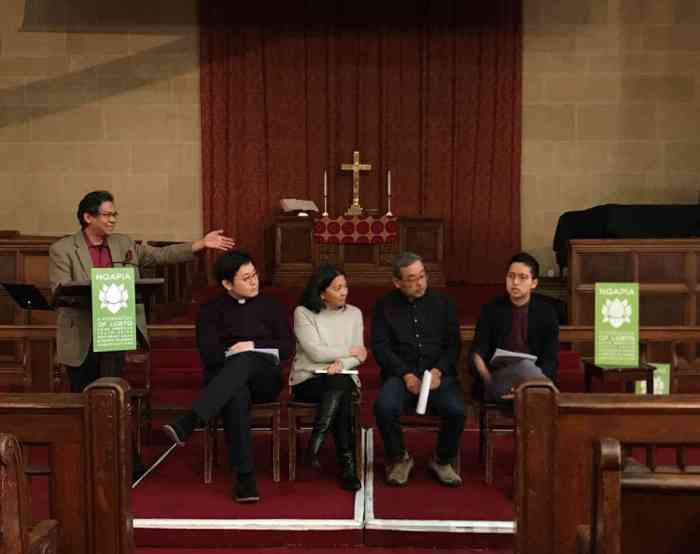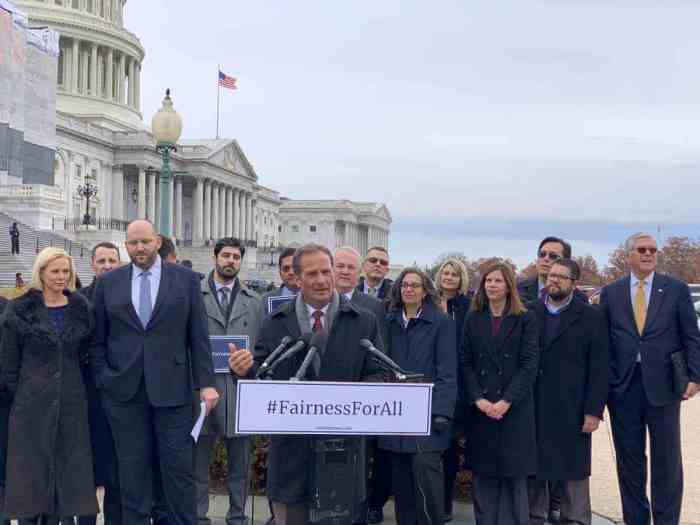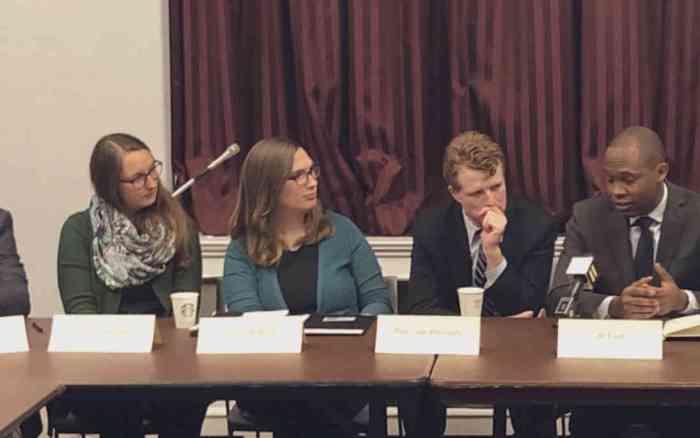Veteran civil rights activist John Lewis, a Georgia Congress member, took a lead role in announcing the new Equality Act. | | JOHNLEWIS.HOUSE.GOV
BY DUNCAN OSBORNE | Standing in the US Senate room named for the president who signed the nation’s most significant civil rights legislation into law, a group of legislators, LGBT advocates, and taxpayers announced the release of the Equality Act, federal legislation that would add sexual orientation and gender identity to the Civil Rights Act of 1964.
“This legislation is what justice requires, this legislation is what justice demands, and like the recent Supreme Court decision, it is long overdue,” said Representative John Lewis, who represents an Atlanta district in the House of Representatives, speaking from the LBJ Room. “We believed then as we do now that we are a society committed to equal justice under the law. We fought too hard and too long against discrimination based on race and color not to stand up against discrimination based on sexual orientation and gender identity.”
Lewis led the Student Non-Violent Coordinating Committee (SNCC) during the civil rights movement and was among those who were beaten when police attacked protesters on the Edmund Pettus Bridge in Selma, Alabama during a 1965 march. That event galvanized public support for the Voting Rights Act of 1965, which was signed by President Lyndon Johnson. Johnson also signed the 1964 Civil Rights Act.
Rallying African-American and women advocates to the cause, sponsors strike theme of unfinished business
The Equality Act, which was introduced in Congress on July 23, is sponsored in the Senate by Jeff Merkley, an Oregon Democrat, and in the House by David Cicilline, who is openly gay and represents a Rhode Island district. The legislation has 40 co-sponsors in the Senate and more than 150 in the House. All of the co-sponsors in both bodies are Democrats.
In addition to adding sexual orientation and gender identity to the 1964 Act, it also adds sex, a category generally perceived as protecting women, to those parts of the law that did not originally include that protected class. In doing so, the sponsors have broadened the coalition that supports the bill.
“The bill is historic in that it closes longstanding gaps in protections based on sex,” said Fatima Goss Graves, vice president for education and employment at the National Women’s Law Center, during the press conference. The legislation was also endorsed by the National Partnership for Women & Families, a Washington, DC non-profit.
The Equality Act is named after legislation first introduced in Congress in 1974 by Representative Bella Abzug, who represented a New York City district. That earlier act would have added just sexual orientation to the 1964 Act. The current version replaces the Employment Non-Discrimination Act (ENDA), which was introduced in Congress in 1994 and replaced Abzug’s Equality Act.
While those earlier measures were never enacted, advocates believe that the landscape has changed and Americans are far more likely to support comprehensive legislation that will protect LGBT people. And with the US Supreme Court extending marriage to gay and lesbian couples in all 50 states, the view is that LGBT people face the intolerable situation of perhaps being fired from a job or evicted from their home should they exercise the right to marry they just won.
“Today, we embark on the next chapter for equality for all Americans,” said Winnie Stachelberg, executive vice president for external affairs at the Center for American Progress, a liberal think tank. “While marriage equality is the law nationwide, the majority of states still lack protections for LGBT people. This paradox is unacceptable.”
Twenty-two states have laws barring discrimination based on sexual orientation and 19 of those also bar discrimination based on gender identity (New York State being one of the 22, but not the 19). The protections in those laws vary in their scope. The Equality Act would bar discrimination based on sexual orientation and gender identity in employment, housing, public accommodations, credit, federally-funded programs, and jury service. For LGBT people living in 28 states, the Equality Act would provide the first nondiscrimination protections other than those offered, in some cases, by local municipalities.
By drawing on links to the earlier civil rights movement and with a lesbian couple, a transgender man, and a gay man offering testimony about discrimination they experienced, the legislation’s announcement was compelling. No one commented on the won’t-get-a-vote prospects for the legislation in the current Congress, which is controlled by Republicans. Whether the legislation will be a useful organizing tool in the 2016 elections remains to be seen.
Notably, none of the top 10 Republican contenders for that party’s presidential nomination responded to an email asking about their position on the legislation. Among the Democratic contenders for that party’s presidential nomination, Martin O’Malley, the former Maryland governor, and Hillary Clinton, the former secretary of state and US senator, tweeted their support for the legislation. Vermont Senator Bernie Sanders had already said he supports amending the 1964 Act to include sexual orientation and gender identity.
“More than being an electoral strategy for next year, it’s starting the discussion,” said Ken Sherrill, a professor emeritus of political science at Hunter College. “That said, there are undoubtedly electoral benefits for the sponsors and for the Democratic Party as well.”
Time magazine reported that at a July 16 appearance at a San Francisco tech company, Jeb Bush said, “I don’t think you should be discriminated because of your sexual orientation. Period. Over and out,” but added, “I think this should be done state-by-state, I totally agree with that.”
Given that just 22 states have enacted anti-discrimination laws that protect LGBT people, that answer may never have been acceptable, but the bar has now been raised much higher.
“That’s now the default position for bigotry,” Sherrill said. “Knowing who controls the state legislatures and how they’ve been gerrymandered, one can safely say, ‘Leave it up to the states,’ knowing full well the states will take no action to protect minorities… It was never good enough to leave it up to the states.”
And as advocates have noted, the views and the status of LGBT people have changed to the point that many Republicans chose to be silent when the US Supreme Court ordered states to issue marriage licenses to gay and lesbian couples and to recognize such unions performed in other states.
Silence may not be sufficient on discrimination.
“It’s going to be more difficult to oppose than it was 40 years ago,” Sherrill said. “It’s no longer cost-free to take a cheap shot. The people who oppose it and the people who fail to sign on to it are more likely to be held to account.”



































